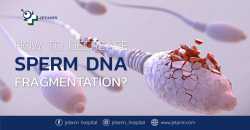[4 / 1 / ?]
Quoted By: >>1283335
You’ve heard of the gut microbiome, and probably skin microbiome, but did you know there’s also a semen microbiome – and that it could affect fertility?
That is the finding of a recent study by the department of urology at the University of California, Los Angeles (UCLA).
Microbiome refers to the collection of microbes – bacteria, fungi and viruses – that affect human health. While there have been many studies into the microbiomes found in the digestive system and on the skin, there has been less focus on the reproductive systems, particularly in men.
However, the UCLA team found that one microbe in particular, the bacteria Lactobacillus iners, can have a direct negative impact on sperm motility, which in turn affects fertility.
Dr. Menka Gupta, a functional medicine doctor with NutraNourish, not involved in the study, suggested it may be possible to improve semen microbiome health but prioritizing gut health.
“I can potentially see a connection between the gut and the semen microbiome through lifestyle factors such as diet, level of stress, [and] exposure to toxins,” Dr. Gupta said.
Dr. Osadchiy noted it may be possible that a gut microbiome with inflammation could “result in conditions that favor a pro-inflammatory semen microbiome.”
“I’m not sure if there is too much definitive data on this yet, but that would be my hunch,” he said.
https://metro.co.uk/2024/03/30/men-becoming-less-fertile-may-finally-know-20556049/
https://www.medicalnewstoday.com/articles/semen-microbiome-linked-to-male-infertility#More-research-on-the-semen-microbiome-needed
That is the finding of a recent study by the department of urology at the University of California, Los Angeles (UCLA).
Microbiome refers to the collection of microbes – bacteria, fungi and viruses – that affect human health. While there have been many studies into the microbiomes found in the digestive system and on the skin, there has been less focus on the reproductive systems, particularly in men.
However, the UCLA team found that one microbe in particular, the bacteria Lactobacillus iners, can have a direct negative impact on sperm motility, which in turn affects fertility.
Dr. Menka Gupta, a functional medicine doctor with NutraNourish, not involved in the study, suggested it may be possible to improve semen microbiome health but prioritizing gut health.
“I can potentially see a connection between the gut and the semen microbiome through lifestyle factors such as diet, level of stress, [and] exposure to toxins,” Dr. Gupta said.
Dr. Osadchiy noted it may be possible that a gut microbiome with inflammation could “result in conditions that favor a pro-inflammatory semen microbiome.”
“I’m not sure if there is too much definitive data on this yet, but that would be my hunch,” he said.
https://metro.co.uk/2024/03/30/men-becoming-less-fertile-may-finally-know-20556049/
https://www.medicalnewstoday.com/articles/semen-microbiome-linked-to-male-infertility#More-research-on-the-semen-microbiome-needed

